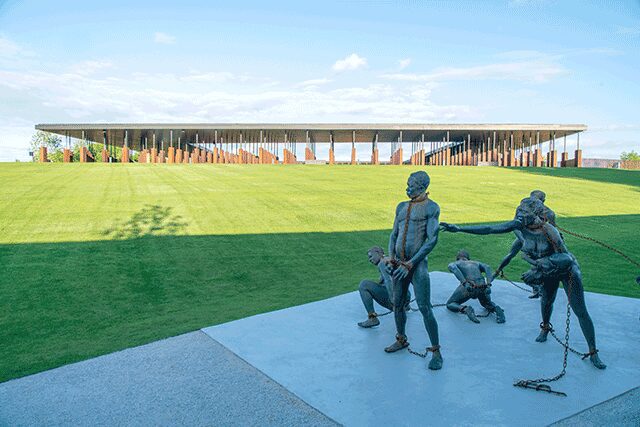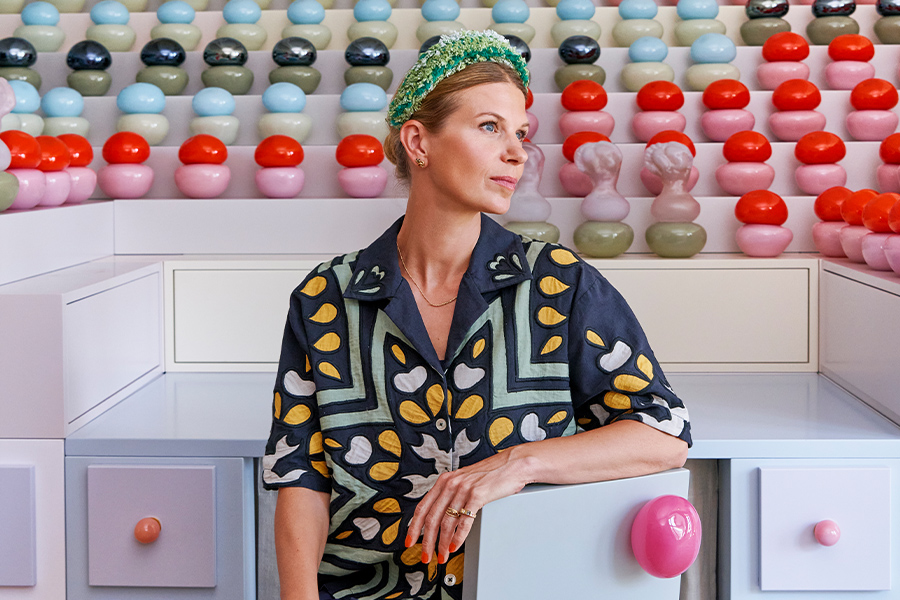Ashley Marsh is a senior architect in the Boston office of MASS Design Group, a nonprofit practice devoted to advancing human society through architecture and design that promotes dignity and justice in unexpected places. During her talk, she shared an inspiring vision of global design that emphasizes inclusivity and progress above all.
Everyone Deserves Good Design
Marsh believes the word design has been hijacked. For most people, it conjures images of fancy objects, but to her, it is not exclusive but inclusive. “If we listen closely to the language we use to describe design, it’s actually what makes society work and succeed,” she says, like clean water that comes out of a faucet and what allows a pen to write across a piece of paper. “Hospitality imagines that we all have profound respect and care for one another and that despite our differences, every human being has intrinsic value and attributes that are worth honoring and elevating.”
Higher Power
Poignant projects designed by MASS, like the National Memorial for Peace and Justice in Montgomery, Alabama—the first in the U.S. to honor lynching victims of the Jim Crow-era South—or the transformation of Malawi maternity villages from damp, rectilinear structures with dirt floors into a village of small clusters of care, reflect the firm’s commitment to justice and human dignity. “We believe we have to bring radical hospitality to the work we do and that’s because we are often working with communities for whom the built environment isolates, segregates, neglects, and forgets,” Marsh says. Take the Butaro District Hospital in Rwanda, which has since spawned multiple health centers in this remote valley. Having an impact on communities is a core part of MASS Design Group’s practice.
A Community-First Approach
Sociologist Eric Klinenberg believes the future of healthy societies rests on shared spaces that comprise our social infrastructure. When Civic Hall opens in New York’s Union Square in 2021, it will shift power to the public, “ensuring the interior experience enables moments for purposeful solitude or rigorous discourse,” she says. “We can include different people who will walk through these doors without putting them in a position to feel unwelcome or uncared for.”
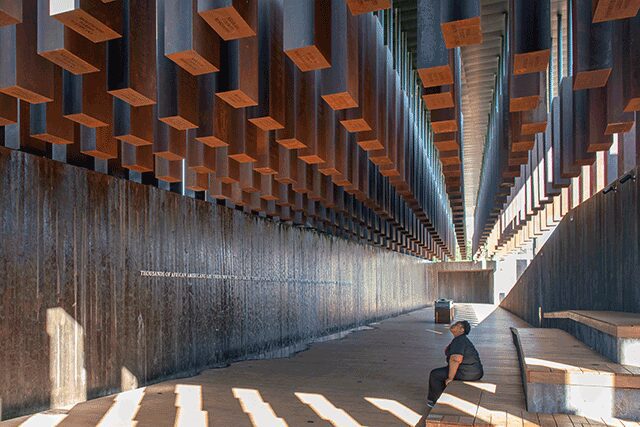
At the National Memorial for Peace and Justice in Montgomery, Alabama, 800 Corten steel monuments are engraved with the names of the victims of racial terror lynchings
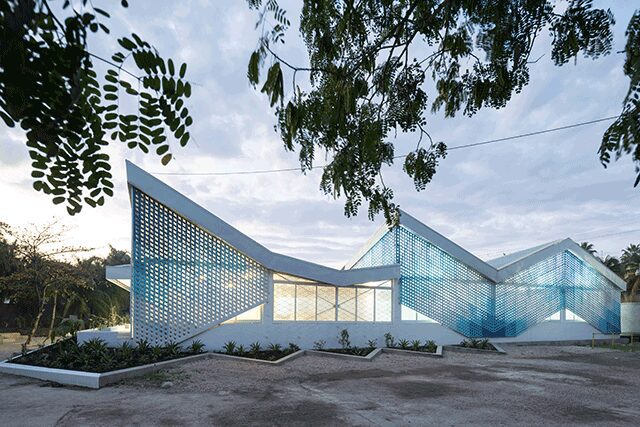
The Gheskio Cholera Treatment Center in Haiti features a perforated exterior to help move air through the facility
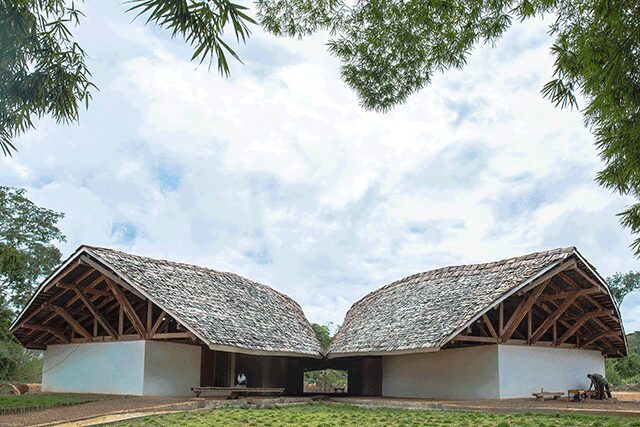
A primary school in Ilima, the Democratic Republic of the Congo employs shingles, mud bricks, and beams made from local materials

